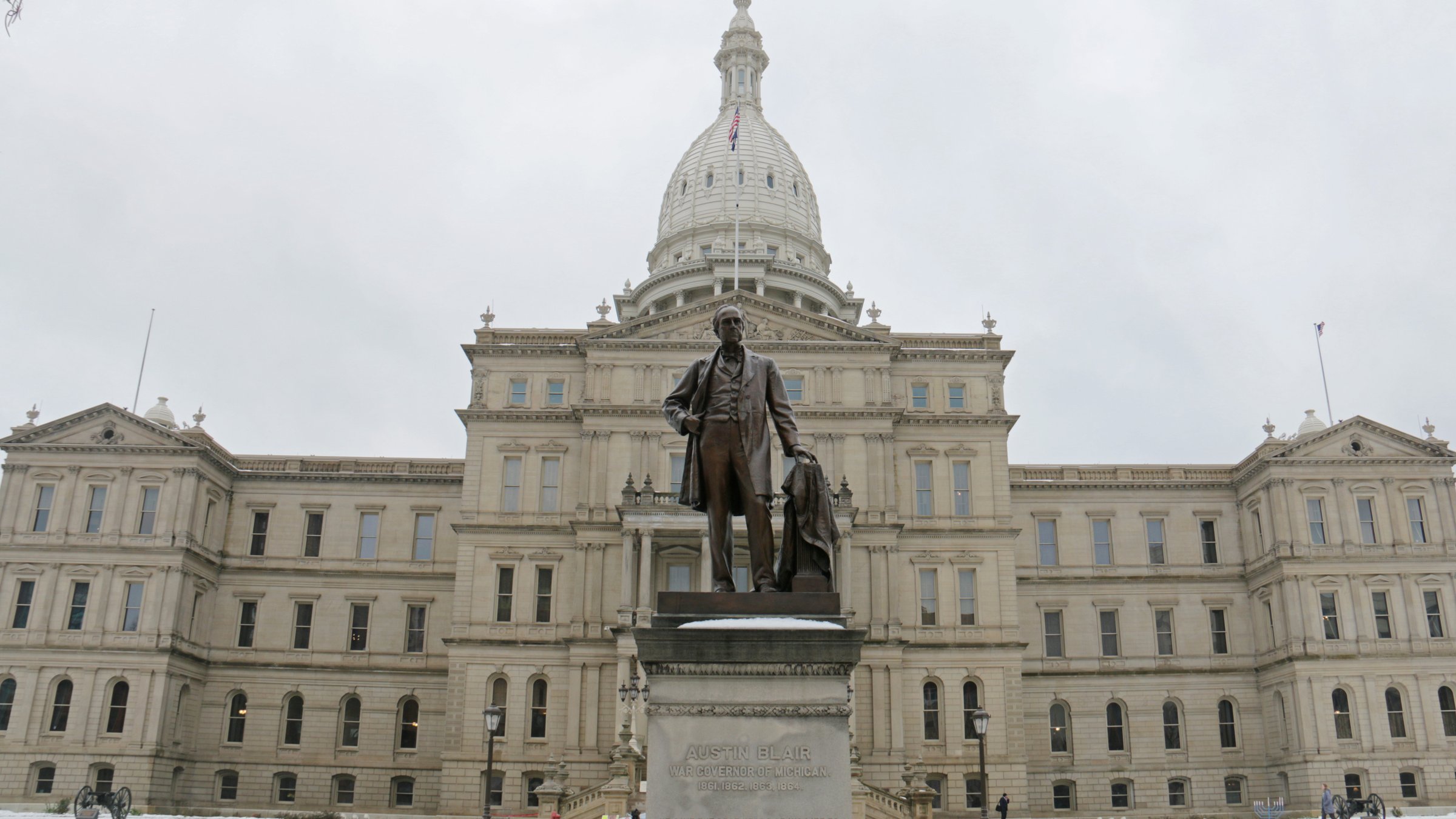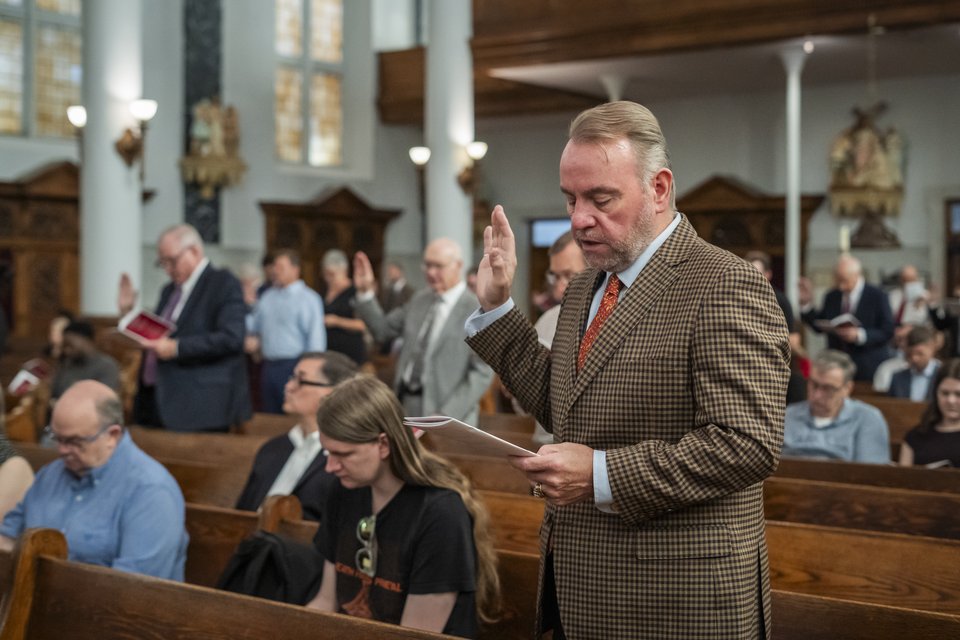It is increasingly important these days to recognize occasions when religious liberty is upheld, as hostility toward people of faith and religious organizations that serve others remains present in society.
Take, for instance, when the city of Philadelphia cut off the local Catholic Social Services agency and its foster care program because the agency had not been certifying same-sex couples as foster parents, citing Catholic teaching on marriage and family.
The Archdiocese of Philadelphia sued, and last June the entire U.S. Supreme Court — all nine justices, including those nominated by both Republican and Democratic presidents — agreed that Philadelphia had violated the Catholic organization’s free exercise of religion.
That decision laid the foundation for another significant decision for religious liberty in Michigan that benefits vulnerable children in foster care.
Here’s how: For more than 70 years, St. Vincent Catholic Charities in Lansing has offered adoption services and helped place foster children with families as one of many private organizations that partners with the state of Michigan in this crucial public service. And like some of these private organizations, St. Vincent’s work is driven by its adherence to the Catholic faith, not only in serving the most vulnerable, but in all that the Church teaches.
That includes the belief — grounded in faith and reason — that children do best in life when they grow up with a mom and dad who remain married to each other. That in no way diminishes the sacrifice single parents carry out in raising children, nor does it diminish the dignity and worth of children who come from such families.
The state’s recognition of the important role faith-based providers play in pairing adoptive and foster children with permanent families was given bipartisan endorsement by the Legislature with a bill signed into law in 2015 that protected the conscience rights of religious providers.
But opposing forces organized to undermine that bipartisan agreement. A lawsuit was filed against St. Vincent over its policy regarding same-sex couples, leading to a “settlement” between the suing party and a sympathetic state agency, resulting in a new policy allowing the state to penalize and sanction agencies like St. Vincent because of its religious beliefs on marriage and family.
It is important to note that St. Vincent serves a diverse array of clients through many social need programs, including young adults who identify as gay or lesbian. And while St. Vincent cannot license same-sex or unmarried couples, they can provide information on agencies who can, as reported recently.
The issue here is not about discrimination, but rather the religious liberty of Catholic providers to serve others in the public square according to their beliefs.
Religious child placement agencies are also very good at what they do. For example, St. Vincent’s work in child placement is quite prolific: In 2017, St. Vincent recruited more adoptive families than nearly 90% of the other agencies in its service area.
Catholic agencies such as St. Vincent are particularly effective at finding homes for children with special needs and sibling groups. According to one study, 45% of Catholic Charities adoptions were of children with special needs. St. Vincent recruits homes for children with disabilities at nearly double the average rate across the state.
Like in Philadelphia, it took a lawsuit in Michigan — this time, from a family with five special-needs children adopted through St. Vincent — to win back the organization’s right to serve according to its Catholic beliefs.
Three years after filing suit, the plaintiff family — represented by the Becket religious liberty law firm — and St. Vincent reached a settlement with the state that could be hailed as a victory for religious liberty, as well as for thousands of vulnerable children who have a network of faith-based agencies working for their well-being.
According to terms of the agreement, the state cannot take adverse action against St. Vincent if the agency does not certify or approve a same-sex or unmarried couple as a foster parent or adoptive parent, does not conduct a home evaluation for a same-sex or unmarried couple, or does not place a foster child with a same-sex or unmarried couple for foster care or adoption.
The settlement terms are significant because if the state had gotten its way, St. Vincent and other Catholic charities would be cut out from helping foster children find families. And with more than 13,000 Michigan children in the foster care system and more than 600 Michigan children aging out of the system each year — leaving them without family, resources or support — placing foster children in families is an all-hands-on-deck situation where more agencies mean more potential families and more kids placed in loving homes.
The Michigan Catholic Conference (MCC) joins the Diocese of Lansing in saying the settlement in the St. Vincent case is an important win for religious liberty that supports the most vulnerable children in the state of Michigan.
As we noted in a statement following news of the settlement, the MCC believes the settlement upholds the constitutional right to religious liberty that is a cornerstone of our state and nation. And it protects the life-affirming and service-minded role of Catholic agencies in serving the general public.
This was not the first time religious liberty has been tested, and it certainly will not be the last.
The preservation of religious liberty, however, and the good that will come from the continued operation of Catholic service providers in our state and our communities is worth celebrating.
The Word from Lansing is a regular column for Catholic news outlets and is written by Michigan Catholic Conference (MCC) president and CEO Paul A. Long. The Michigan Catholic Conference is the official public policy voice of the Catholic Church in this state.
Copy Permalink
Faithful citizenship












